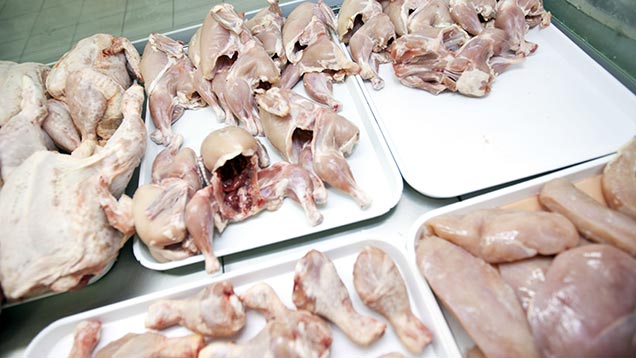FSA considers tougher measures on campylobacter control
 ©Mood Board/Rex Shutterstock
©Mood Board/Rex Shutterstock The Food Standards Agency (FSA) has said it may advise consumers directly on which supermarkets it considers safe to buy chicken from.
It has also mooted ordering poultry contaminated with campylobacter be cooked or frozen, to mitigate the risk to human health.
See also: Strategies on the battle against campylobacter explained
Those were two measures that could be employed if sections of the poultry industry were unable to create meaningful reductions in the bug, according to a report prepared by FSA policy director Steven Wearne.
Retail testing to resume
The FSA board approved a new round of testing whole birds at retail, and naming supermarkets.
This survey, set to publish quarterly, will take 100 birds from the major retailers – now including discounters Aldi and Lidl – and rank them according to contamination levels.
This differs from the first year of testing, as an even number of birds will be sampled from each business, allowing for “naming and shaming” from the start.
The FSA expected to begin its survey in July this year, with the first report to be published around November.
It is also understood a full breakdown of figures from the first year of testing at retail will be made available in September.
Presenting to the FSA board, Mr Wearne said that, while interventions were beginning to have an effect, it was unlikely that industry as a whole would meet the target for reduction by the end of 2015.
“This offers the prospect of us having at the end of this year a number of retailers who are able to demonstrate that they consistently meet or better the target they agreed, and a number who cannot,” he said.
Tighter controls
He suggested stricter measures, either through legislation or otherwise, may be imposed on those who fell behind the best retailers.
One suggestion was that the FSA may advise “on changes [consumers] might choose to make to their purchasing habits”, though this might run the risk of legal challenges from retailers.
Another idea was imposing limits to the amount of campylobacter that could be found on a bird, before it was required to be cooked or frozen, a model employed by some Scandinavian countries.
The FSA board, which met on 15 July, also agreed to a second round of retail testing.
